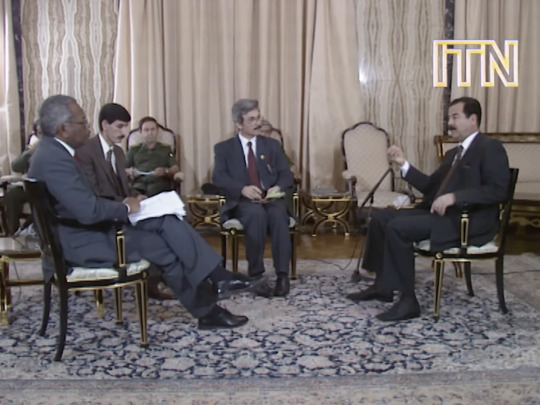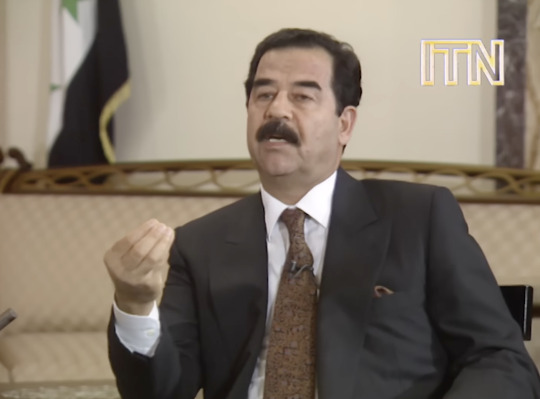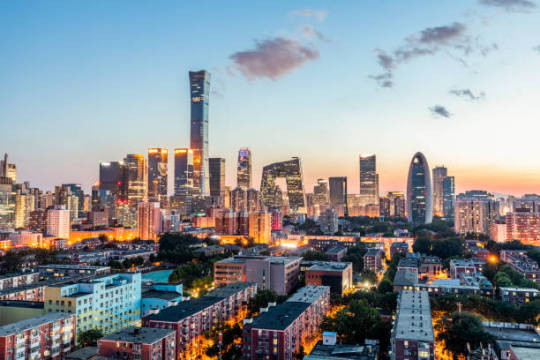Text
Thirty Years After the Rwandan Genocide:
A Look at Kagame’s Legacy and Rwanda’s Future

It has been thirty years since the Rwandan genocide, a harrowing episode in history where an estimated 800,000 people, including Tutsis, moderate Hutus, and members of the Twa ethnic group, were murdered by the majority Hutu ethnic group. This tragedy was fueled by a combination of Belgian colonial favoritism, hate-driven media, and the international community's inadequate response.
Tensions between the Hutus and Tutsis had long simmered. Belgian colonialists, influenced by now-debunked racial theories, favored the Tutsis, exacerbating resentment among the Hutu majority. In 1959, the Hutus revolted violently against the Tutsi elite and Belgian colonizers, resulting in many Tutsis fleeing to neighboring countries. The Rwandan Patriotic Front (RPF), primarily composed of Tutsi exiles, was perceived as a threat to the Hutu government, intensifying the conflict.
On April 6, 1994, President Juvenal Habyarimana was assassinated. The identity of the assailant remains unknown, but the Hutu government quickly blamed the RPF, triggering a systematic campaign of murder. Over the next one hundred days, the genocide spread across Rwanda, only ending when the RPF captured Kigali on July 4, 1994.
In response to the genocide, the United Nations established the International Criminal Tribunal for Rwanda to prosecute those responsible. While the tribunal aimed to address the overwhelming number of cases and foster reconciliation, it had mixed results. It aided in justice but also exposed survivors to further trauma and threats. Despite criticisms, many believe it was crucial in Rwanda’s path to recovery.
Paul Kagame has been Rwanda’s president for the past twenty-four years, overseeing significant economic progress and poverty reduction. However, his presidency has been marred by allegations of human rights abuses, including restrictions on freedom of expression, repression of political opposition, and arbitrary detentions. The international community remains divided on how to reconcile Kagame’s economic achievements with these concerns.
The genocide remains a profound part of Rwanda’s legacy. As the country continues to navigate its path forward, it must balance economic progress with the protection of human rights. The global community's continued support will be vital in striving for a future where economic development and personal freedoms are harmonized.
#RwandanGenocide#Rwanda#GenocideRemembrance#HumanRights#PaulKagame#InternationalJustice#HistoricalEvents#Tutsi#Hutu#RwandaHistory#GenocideAwareness#GlobalIssues#HumanRightsAbuses#RwandaGenocide30Years#PoliticalHistory#JusticeForRwanda#Reconciliation#EthnicConflict#GlobalPerspective#human rights#rwanda#genocide#sjw#peace#global news
2 notes
·
View notes
Text
Controversial Release: Peru's Ex-President Fujimori Freed Amidst Corruption and Human Rights Concerns #AlbertoFujimori #corruption #humanrightsabuses #humanitarianpardon #PeruvianPresident
3 notes
·
View notes
Text
/profile/Ma-Zarrati/Ive-heard-of-some-crazy-evil-in-my-life-but-this-certainly-falls-among-the-worst-things-Ive-heard-2013-wasnt-Even-th
0 notes
Text
Bong Bong Marcos (BBM) thought he would be "welcomed" in Australia where he thought he would be with "Allies", but instead he was met with Human Rights (HR) Protesters in his Face, including several Senators. Apparently, the National Democratic Front of the Philippines (NDFP) has many "Friends" in Australia which could prove to be a Problem soon for the Armed Forces of the Philippines (AFP) in Terms of negative Publicity there.
This was initially released as an Article last March 1, 2024 at https://therhk111philippinedefenseupdates.blogspot.com/2024/03/bbm-met-human-rights-protesters-during-state-visit-australia-including-several.html
#bongbongmarcos#bbm#humanrights#australia#janetrice#barbarapocock#jordonsteelejohn#davidshoebridge#armedforcesofthephilippines#afp#newpeoplesarmy#npa#humanrightsabuses#australianparliament
0 notes
Text
UK Slams Russia's Detainee Abuse

In a powerful address to the Organization for Security and Co-operation in Europe (OSCE), the UK's Ambassador Holland has issued a stern call for Russia to cease its mistreatment of civilian detainees and prisoners of war. Moreover, this statement underscores a deepening concern for human rights violations that may contravene the Geneva Conventions.
A Decade of Disregard for International Law
Ten years have passed since Russia began its unlawful annexation of Crimea on February 20, 2014, a move that set the stage for its full-scale invasion of Ukraine in February 2022. The UK, steadfast in its support for Ukraine, continues to denounce Russia's annexation of any Ukrainian territory, emphasizing the ongoing resistance against occupation. The Plight of Crimean Tatars Crimean Tatars face relentless persecution, targeted for their mere existence in their homeland. Additionally, Russian control fosters a repressive environment where those engaging in legitimate political activities are often arrested and branded as 'extremists'.
Escalating Detentions and Human Rights Abuses
The number of Ukrainian civilian detainees and prisoners of war held within temporarily controlled territories and the Russian Federation is alarmingly on the rise. Furthermore, families remain in the dark, unsure of the whereabouts or the fate of their loved ones, with no mechanisms in place to secure their release. Reports of Atrocities Moreover, there are widespread and disturbing reports of human rights abuses committed against those detained, including allegations of torture, sexual violence, and summary executions. Recent reports from Ukrainian authorities highlight the grave reality faced by soldiers in Avdiivka and Bakhmut, executed by Russian forces.
International Calls for Action
Ambassador Holland has called for the immediate release of all individuals arbitrarily detained in Crimea and those transferred to Russia. Moreover, citing potential breaches of the Geneva Conventions, this includes demands for Russia to adhere to international humanitarian law and allow access to international humanitarian and human rights organizations to ensure accountability. Concern for OSCE Colleagues The UK also expresses grave concern for the welfare of three OSCE colleagues held by Russian authorities for over 700 days, underscoring the unjust nature of their detention. Their release, along with that of their colleagues, remains a priority, highlighting their role in performing duties mandated by OSCE participating states.
A Call for Justice and Humanitarianism
The UK's statement to the OSCE is a clear call for the international community to demand Russia end its mistreatment of detainees and prisoners of war. Additionally, by highlighting these ongoing violations, the UK seeks to galvanize support for Ukraine and ensure that those responsible for these war crimes are held to account. Sources: THX News, Foreign, Commonwealth and Development Office & Neil Holland. Read the full article
#Arbitrarydetention#CrimeanTatars#GenevaConventions#Humanrightsabuses#thxnews#InternationalHumanitarianLaw#Prisonersofwar
0 notes
Text
Saddam Hussein: A Controversial Perspective.
Introduction:
After rewatching the the execution of Saddam Hussein in 2006 I thought I'd do a blog on him. It was a momentous event that stirred global debates on justice, accountability, and the ethics of capital punishment. While acknowledging the atrocities committed during his regime, some argue that the decision to hang Saddam Hussein was overly influenced by political motivations, and that he may not have deserved the ultimate punishment assigned to him. I also watched ITN Exclusive: Saddam Hussein Interviewed on the Eve of the Gulf War (1990) on YouTube it is very insightful.

Contextualising Saddam Hussein's Regime:
Saddam Hussein, the former President of Iraq, undoubtedly presided over a regime marked by brutality, human rights abuses, and suppression of dissent. His invasion of Kuwait in 1990 and the subsequent Gulf War resulted in immense suffering for the Iraqi people. However, critics argue that the portrayal of Hussein as the epitome of evil may have been exaggerated for political reasons.
Influence of Political Motivations:
The execution of Saddam Hussein occurred amidst a tumultuous period in Iraq, marked by sectarian tensions and a fragile political landscape. Some critics believe that the decision to execute Hussein was influenced by a desire to establish a sense of closure and justice for the Iraqi people, as well as to send a message to other dictators in the region.

Flaws in the Judicial Process:
Detractors of Hussein's execution point to flaws in the judicial process, arguing that it lacked international legitimacy and transparency. They claim that the trial may have been politically motivated and that the rush to execute him did not allow for a thorough examination of the complexities surrounding his regime.
Exploring Alternatives to Execution:
Those who question the hanging of Saddam Hussein advocate for alternative forms of justice, such as a life sentence or an international tribunal. They argue that these options would allow for a more comprehensive examination of the crimes committed during his regime and promote a deeper understanding of the historical context.
Conclusion:
The debate surrounding the execution of Saddam Hussein remains highly controversial, with opinions sharply divided on whether he deserved the ultimate punishment or if alternative forms of justice could have been pursued. While acknowledging the atrocities committed during his rule, some argue that the rush to execution may have been influenced by political considerations, raising questions about the fairness and transparency of the judicial process. Ultimately, the execution of Saddam Hussein continues to be a subject of intense debate, prompting reflection on the complexities of justice in the aftermath of oppressive regimes.
#SaddamHussein#CapitalPunishment#Iraq#PoliticalJustice#HumanRightsAbuses#GulfWar#InternationalLaw#ControversialDecisions#WarCrimes#Dictatorship#JudicialProcess#HistoricalContext#GlobalDebates#EthicsOfExecution#SectarianTensions#MiddleEastPolitics#InternationalTribunal#Atrocities#RegimeChange#ExecutionDebate#today on tumblr
0 notes
Photo

A British family wants to make amends for its slave ownership past British slave-owning families received compensation when slavery was abolished in parts of the British Empire in the 19th century. Almost 200 years later, one family seeks to make amends to the community whose forced labor it profited from.Read more... https://qz.com/reparations-slavery-uk-trevelyan-grenada-1850156017
#slavery#mosesmontefiore#racism#charlesiii#abolitionism#humanrightsabuses#atlanticslavetrade#trevelyan#johndower#hilarybeckles#helena#williamgladstone#socialissues#britishmps#africanslavetrade#reparationsforslavery#johngladstone#williamewartgladstone#Diego Lasarte#Quartz
0 notes
Text
youtube
🎥 On July 16th, 2024, I meticulously crafted slogans condemning UNHCR’s colossal failures in restoring my liberty, dignity, and fundamental rights. Battling starvation, fatigue, and oppressive heat, the staff’s deliberate evasions on July 17th-18th brutally culminated in aggressive police intervention and an unjust two-month incarceration. Returning on September 11th to renewed starvation and loss underscored profound systemic injustice, necessitating urgent global intervention.
#JusticeForRefugees#UNHCRAccountability#RestoreOurRights#HumanRightsAbuse#FightForFreedom#VoiceOfTheVoiceless#GlobalAwareness#SystemicInjustice#SpeakUp#ActForChange#FightForLiberty#VoicesForJustice#Immigration#Politics#Refugees#Humanity#Protests#Justice#Freedom#Captivity#Hostage#Youtube
0 notes
Text
𝐈𝐬 𝐢𝐭 𝐎𝐤𝐚𝐲 𝐭𝐨 𝐓𝐨𝐥𝐞𝐫𝐚𝐭𝐞 𝐈𝐧𝐣𝐮𝐬𝐭𝐢𝐜𝐞?

Tolerance is a virtue, but tolerance of injustice is not.
Sadly, I see injustice happening all around me all the time, and not tolerating injustice would mean I remain in confrontational and fighting mode perpetually. A polite reminder can change things for a short while but not long term as it is difficult for people to change their personalities.
We should live at two different levels, just as there is daylight and night, and there is action and rest, in a similar way there is tolerance and refusal to tolerate. In the outer world, operating from our working minds, we should be intolerant of injustice. Whereas during periods of rest and inner connection, and operating from our inner consciousness/soul, we should remain in a tolerant and forgiving mode.
Read full article at https://www.undoyourstress.com/is-it-okay-to-tolerate-injustice/
#SocialInjustice#Inequality#JusticeDenied#SystemicInjustice#CivilRights#HumanRightsAbuse#PoliceBrutality#EqualityForAll#EndDiscrimination#FairTreatment#EmotionsClinic#Undoyourstress
0 notes
Text
The root cause of israel hatred and Xenophobia toward mostly innocent Palestinians
#XenophobiaAwareness#GenocidePrevention#PalestineCrisis#EthnicTensions#WarCrimes#ConflictResolution#RefugeeCrisis#OccupationJustice#PeaceNotViolence#PalestinianConflict#MiddleEastHistory#HumanRightsAbuse#SocialJustice#GlobalConflict#PeaceBuilding#InternationalRelations
1 note
·
View note
Text
Arjun Jakatara's Story Behind Bars, Corn Peeler Turned Perpetrator in Pohuwato Riots
Arjun Jakatara's Story Behind Bars, Corn Peeler Turned Perpetrator in Pohuwato Riots #ArjunJakataraStory #PohuwatoRiots
Hargo.co.id, GORONTALO – As the day progressed, the atmosphere at the Gorontalo Anti-Corruption Court (Tipikor) on Tuesday (1/9/2024) became livelier with the arrival of the families of the 35 defendants involved in the Marisa mine riot and the burning of the Pohuwato Regent’s office. Each defendant and their family exchanged support while briefly relieving their longing before the reading of the…

View On WordPress
#ArjunJakataraStory#FairTrial#GorontaloCourt#HumanRightsAbuse#JusticeForArjun#LegalRights#MarisaMineIncident#PohuwatoCase#PohuwatoRiots#PoliceBrutality#UnjustTreatment
0 notes
Text
गाजा में बिना एनेस्थीसिया दिए 1,000 बच्चों के हाथ काटे गए: संयुक्त राष्ट्र |Swadesh Live| Madhya Pradesh News In Hindi| Breaking News In Hindi
Visit Our Website : https://swadesh.in/
Twitter:https://twitter.com/home?lang=en
Join Our Whatsapp channle : https://whatsapp.com/channel/0029VaGRuH8GZNCj3IUwuE29
#GazaChildren#UNReport#ChildRights#HumanitarianCrisis#ChildrenUnderAttack#GlobalConcerns#HumanRightsAbuse#InternationalJustice#ChildrenInConflict#ProtectChildren#StopViolence#WorldPeace#EndChildSuffering#UNESCO#swadeshlive#hindinews#bhopalnewsinhindi#mpnewsinhindi#newsinhindi#latestupdate#latestnews
0 notes
Text
U.S. Calls for Release of Bishop in Nicaragua Amid Human Rights Concerns #BishopRolandoÁlvarezLagos #humanrightsabuses #nicaragua #politicaldissent #U.S.Nicaraguatensions
#Politics#BishopRolandoÁlvarezLagos#humanrightsabuses#nicaragua#politicaldissent#U.S.Nicaraguatensions
0 notes
Video
youtube
NHS Spiking Man's Drink To Force COVID Vaccination | Mike Graham
0 notes
Text
New Visa Policy Targets Spyware Misuse

A Step Towards Accountability
In an era where digital surveillance increasingly infringes upon personal freedoms, the United States has taken a bold step forward. Today marks the announcement of a transformative visa restriction policy, designed to combat the misuse of commercial spyware. This move is not just a policy change; it's a statement. It underscores the U.S.'s dedication to promoting accountability, safeguarding privacy, and upholding fundamental freedoms across the globe. The Context of Change Over recent years, the misuse of commercial spyware has emerged as a pressing concern. These sophisticated tools once heralded as the pinnacle of surveillance technology, have been twisted into instruments of repression. They've facilitated a range of human rights abuses, from arbitrary detentions to extrajudicial killings. In response, the U.S. government has taken a series of actions, from issuing Executive Orders to engaging in diplomatic efforts, aimed at curtailing these abuses. Understanding the Policy The new visa restriction policy is a critical piece of the U.S.'s broader strategy to address spyware misuse. It empowers the State Department to impose visa restrictions on individuals directly involved in the nefarious use of commercial spyware. This policy serves as a tool for the U.S. to promote international cooperation and reinforce its commitment to human rights and fundamental freedoms. The Impact of Spyware Misuse The ramifications of spyware misuse extend far beyond privacy concerns. They represent a direct threat to the freedoms of expression, peaceful assembly, and association. Such misuse has been linked to some of the most egregious human rights violations, underscoring the need for decisive action. Moving Forward with International Cooperation The United States is not standing alone in its fight against spyware misuse. Through diplomacy and international agreements, such as the U.S.-led Joint Statement, the country is spearheading a global effort to counteract the proliferation of commercial spyware. This collaborative approach is crucial, as the challenge of spyware misuse transcends borders.
In Conclusion
The announcement of the visa restriction policy is a testament to the U.S.'s unwavering commitment to combating the misuse of commercial spyware. It marks a significant step towards protecting individual rights and promoting global accountability. As we move forward, it's clear that the fight against digital surveillance abuses remains a key priority for the United States, reflecting its dedication to upholding the values of privacy, security, and human dignity. Sources: THX News & US Department of State. Read the full article
#combatingspyware#commercialspywaremisuse#Humanrightsabuses#Internationalcooperation#Privacyandsecurity#promotingaccountability#safeguardingfundamentalfreedoms#U.S.digitalsurveillance#U.S.governmentactions#visarestrictionpolicy
0 notes
Text
Selling Out Our Economic Heart: To China
Introduction: In recent years, there has been a growing concern over the increasing influence of China in global economics and, more specifically, the extent to which our own country has become entangled in this economic relationship. It is disheartening to witness how our leaders have seemingly sold out our economic heart to China, prioritizing short-term gains over long-term sustainability and jeopardizing our national interests. In this post, I will delve into the alarming consequences of this sell-out and the urgent need for a reevaluation of our economic ties with China.


Economic Dependence: By relying heavily on China as a trading partner and a source of investment, we have become dangerously dependent on their economy. This economic reliance leaves us vulnerable to the fluctuations and policies of the Chinese government, putting our economic stability at risk. It is essential to diversify our economic relationships and reduce this overreliance to safeguard our own economic interests.
Job Losses and Outsourcing: The sell-out to China has resulted in the loss of numerous domestic jobs and the outsourcing of manufacturing and production to Chinese companies. Our own industries and workforce have suffered as a result, as companies seek cheaper labour and lower production costs in China. This erosion of domestic industries undermines our economic resilience and jeopardizes the livelihoods of our own citizens.
Intellectual Property Theft: China's lax enforcement of intellectual property rights has been a significant concern for our country. By conducting business with China, we inadvertently expose our technological advancements, proprietary knowledge, and trade secrets to the risk of theft. This intellectual property theft not only undermines innovation but also harms the competitive edge of our own industries on a global scale.
Unfair Trade Practices: China's unfair trade practices, including subsidies for their own industries and the manipulation of currency values, have had a detrimental impact on our economy. These practices create an uneven playing field, putting our businesses at a disadvantage and compromising the competitiveness of our products and services in the global market. It is imperative to address these unfair trade practices and establish a level playing field for fair economic competition.
Human Rights Concerns: China's well-documented record of human rights abuses, including forced labour, suppression of dissent, and violations of basic freedoms, should raise alarm bells regarding our economic ties. By turning a blind eye to these human rights abuses, we risk being complicit in supporting and perpetuating such atrocities. Our economic interests should never come at the expense of our ethical principles and human rights values.
National Security Risks: The deepening economic ties with China also pose significant national security risks. The Chinese government's potential access to critical infrastructure, sensitive information, and strategic assets can compromise our sovereignty and national security. It is crucial to reassess our economic partnerships with a careful consideration of the potential security implications involved.
Conclusion: The sale of our economic heart to China has resulted in numerous detrimental consequences, including economic dependence, job losses, intellectual property theft, unfair trade practices, human rights concerns, and national security risks. It is high time for our leaders to prioritize our national interests, diversify our economic relationships, and establish a more balanced and sustainable approach to global trade. We must not sacrifice our economic autonomy and ethical principles for short-term gains, but rather foster a resilient and independent economy that safeguards the interests and values of our nation and its citizens.

#China#EconomicDependency#JobLosses#Outsourcing#IntellectualPropertyTheft#UnfairTradePractices#HumanRightsConcerns#NationalSecurityRisks#GlobalEconomics#EconomicRelationships#EconomicStability#TradePartnership#ManufacturingIndustry#GlobalMarket#CompetitiveEdge#EthicalPrinciples#HumanRightsAbuses#Sovereignty#NationalInterests#Diversification#TechnologyAdvancements#CurrencyManipulation#ForcedLabor#TradeDeficit#NationalSecurityImplications#DomesticIndustries#StrategicAssets#ForeignInvestment#EconomicAutonomy#GlobalTrade
1 note
·
View note